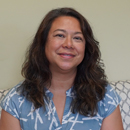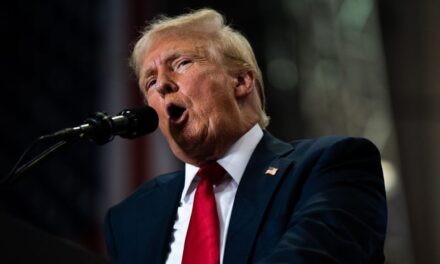
In February 2020, my father officially became a citizen of the United States after taking his citizenship test.
During the exam, each applicant is asked up to 10 questions from a pool of 100 civics questions, and must correctly answer at least six to pass. For some, this might be an easy task, but for my non-English-speaking father, it posed a momentous challenge. So a year before his scheduled test, I began helping him prepare.
Every day for a year, when I stepped into his Toyota minivan to go to school, I heard a recording of the civics questions. What are two rights outlined in the Declaration of Independence? Life, liberty and pursuit of happiness. What is one responsibility reserved only for United States citizens? Serve on a jury, vote in a federal election. What is one reason colonists came to America? Freedom, political liberty, religious freedom, economic opportunity and escape persecution.
After months of practice, my father’s initial struggle to keep up with the questions transitioned into clear and distinct memorization of the answers. I, too, began to carve each question into my memory as I learned the history, responsibility and rights of being a U.S. citizen.
That same year was the presidential election. After learning about the importance of voting, I felt inspired to write an opinion piece encouraging my community to cast their ballots. The article was published in my local newspaper, sparking my journey as a journalist.
That year, more than 80 million Americans remained at home and did not vote in the 2020 election. Four years later, the nation is still divided with many Americans weary of the state of our politics.
When America was first founded, only white men who owned property could vote. As voting rights expanded, biased officials used poll taxes, literacy tests and violence as obstacles that prevented minorities and African Americans from casting ballots and having a voice in the electoral process. With the protests and hard work of suffragists, any United States citizen aged 18 or older can now vote. People in our nation’s history have risked their lives for the right to vote, yet today many Americans are disengaged and refuse to exercise that right. Some people opt out of the election process because they believe their votes do not matter, or they have lost hope in seeing changes to the policies in which they believe.
The U.S. Census reports that “the 2020 presidential election had the highest voter turnout of the 21st century, with 66.8% of citizens 18 years and older voting in the election.” A full third of the nation’s eligible voters, however, did not cast a ballot. What happened to the other 33.2% of citizens eligible to vote? Instead of disengaging altogether, we must first protect our democracy by ensuring our voices are represented in the election process that keeps our republic intact.
Election outcomes will always affect our rights, jobs, economy, climate and community, and the quality of our lives. Those who are eligible to vote should set an example for the younger generations who will be registering to vote once they turn 18.
Although I am not yet old enough to vote, I am determined to motivate more members of our community to exercise their right to do so. Only by voting can we elect people who stand for the values and issues we believe in.
Our democracy is what we make of it.
Eileen Liu is a senior at Menlo-Atherton High School in Atherton. Student News appears in the weekend edition. You can email Student News at news@smdailyjournal.com.




